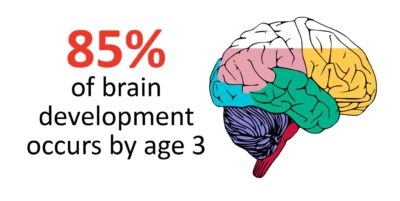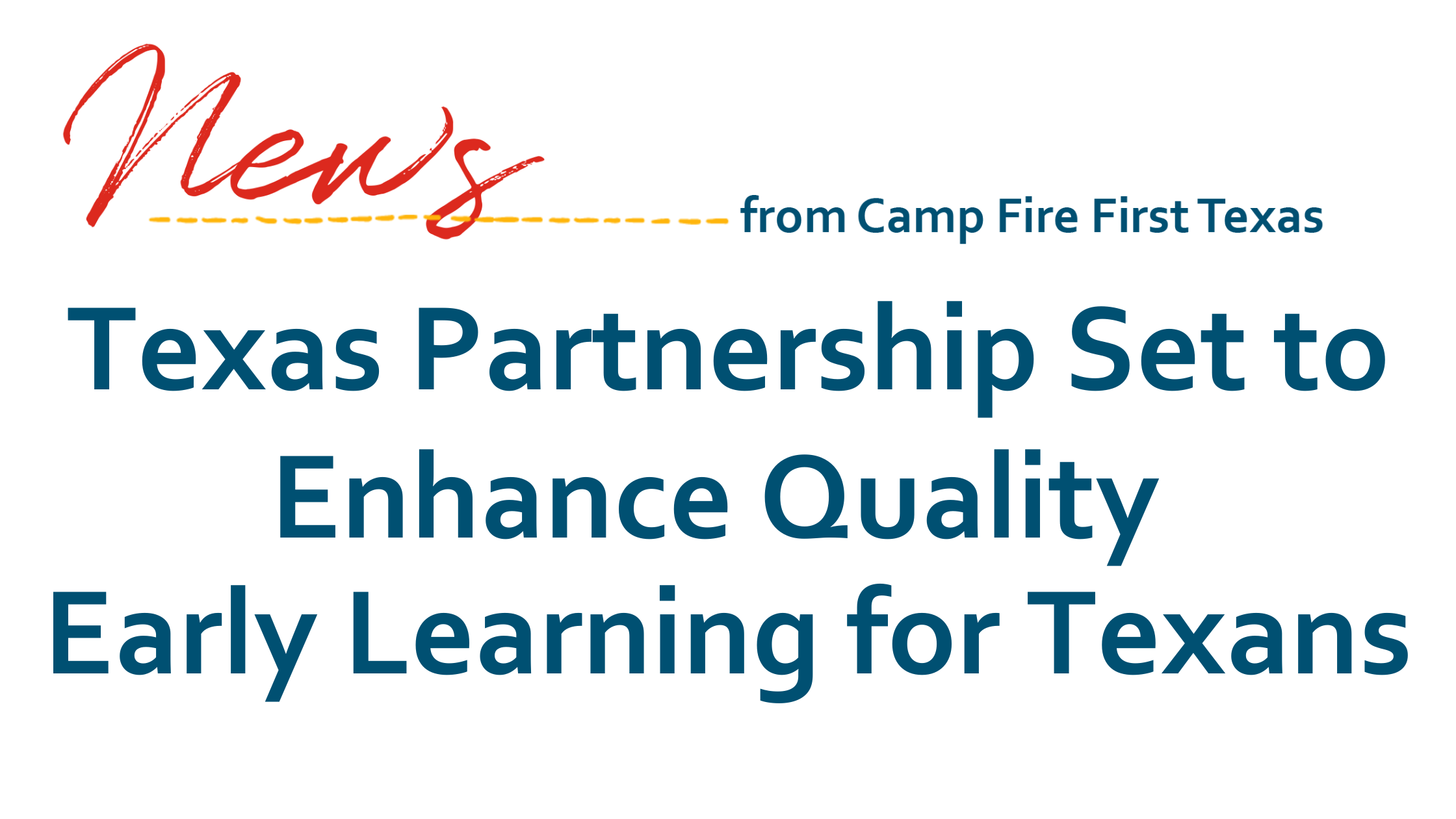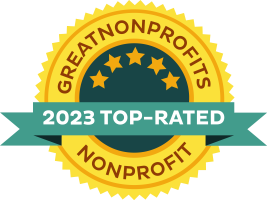Fort Worth, Texas (April 26, 2021) – Tarrant County College (TCC), together with Camp Fire First Texas Early Education Apprenticeship Program (EEAP), was awarded a $120,000 Texas Workforce Commission (TWC) ApprenticeshipTexas Expansion grant. These funds will support the two entities whose partnership provides early education teachers working with children age 0 – 5 a pathway for educational and career advancement, to earn increased wages, and college credit for professional certifications.
This grant will help strengthen and expand Camp Fire Early Education Program in two fundamental areas:
- Provide an Apprentice Navigator at TCC to administer the grant and review reports prepared by EEAP director for TWC. TCC will also audit U.S. Department of Labor RAPIDS reporting system reports.
- Will expand access of the program to 60 apprentices. This is triple the number of apprentices registered during 2020, the inaugural year of the program.

Lisa Self, Tarrant County College
“Tarrant County College is honored to be a trusted partner for the Camp Fire Early Education Apprenticeship Program,” said Lisa Self, associate professor of child development and education at TCC Northeast. “With this expansion grant, more students will have the opportunity to transition from the apprenticeship program to Tarrant County College, and on to Tarleton State University, if they choose. This is a higher education opportunity that some students might not have ever thought possible.”
The Camp Fire Early Education Apprenticeship Program (EEAP) is the first early education apprenticeship program of its kind in Texas and is certified by the U.S. Department of Labor. It welcomed the first class of 20 apprentices in August 2020. Due to the COVID-19 pandemic, all training, mentoring and course work has been done virtually building a digital infrastructure allowing the program to reach a wider geography than originally planned.

Eboni Kelly, Camp Fire First Texas
“When Camp Fire conceived and began building this program we knew strong partnerships, not only with fellow early education advocate organizations, but also with higher education entities, was a critical component to deliver lasting change and recognition for the professionals in this career,” explained Eboni Kelly, Director of Camp Fire EEAP. “TCC is one of two local higher education partners and three community organizational partners that have championed this trailblazing program.”
The EEAP is an “earn while you learn” paid apprenticeship program for early childhood educators encompassing direct education experience hours, coursework hours, and competency-based observational hours and exams. The completed EEAP can serve as a stand-alone educational requirement, a career enhancement into an early education specialty, or as a pipeline into college.
As a Higher Education Partner, TCC paves pathways for early educators to earn college credit while working and learning on-the-job.
The EEAP acts as a system-change program impacting the way the North Texas early childhood education industry engages with educational and career pathway support for teachers, directors and other early childhood education professionals.
“Camp Fire First Texas launched the EEAP after more than a decade of research gathered through implementation of a school readiness program. We found that improving the access to mentoring, knowledge, professionalism and confidence of teachers in the classroom improved the quality of learning and social emotional competency of the children in their classrooms,” explained Kelly.

Research shows that more than 85% of brain development occurs in the first three years of life. Gaps in behavioral and cognitive development are present in children as young as nine months old. Responsive caregivers have the power to mitigate these gaps and that is one of many reasons it is crucial these educators receive quality training and support.
The value of apprenticeships are clear.
“Because of the funding that has been established for the Early Education Apprenticeship Program and the new expansion grant, students not only have the opportunity to explore higher education, but have monetary incentives to complete the program and guaranteed pay increases as a part of the apprenticeship program,” Self explained. “Through the TEACH Early Childhood Program, which provides scholarships to childcare providers working in centers that receive subsidies, they can continue their higher education goals with continued scholarships. This will help students to complete their degree(s) without the burden of loans or debt- which is a great incentive to complete, rather than entering higher education on a more traditional path.”
Apprenticeships Build Quality
A recent apprenticeship study published by Bank Street College of Education highlights early learning is complex and requires skilled educator-caregivers and that high-quality apprenticeship programs have the ability to serve as a backbone for rebuilding the workforce.
In Texas, as is seen nationwide, early educator wages fall in the bottom tier. This has a rolling negative impact on access to quality early education because those passionate about this career leave the industry to secure adequate income, the low wages limit access to advanced education, training or degrees to positively impact professional knowledge and career advancement in this sector. With fewer qualified individuals in the position of early education, there becomes a shortage of quality program availability just as more working parents are seeking quality programs.
Less than 10% of child care programs nationally were operating at a level considered to be quality. In North Texas, only about 7% of programs can meet quality thresholds set by Texas Rising Star, Texas’ quality rating system. Early education apprenticeships that are widely available and adequately funded and supported have the potential to both rebuild the supply of care while also ensuring education receive high-quality practice and coaching required for the complex task of supporting early brain development.
Considerations for a high-quality apprenticeship according to the Bank Street study include: compensation reform, prioritizing infant/toddler educators, accommodates the existing workforce, meets the unique needs of home-based child care, defines quality coaching and invests in program-level improvements.
The Camp Fire EEAP checks these boxes, but more support is needed.
Legislation for Early Educator Apprenticeship Expansion
HB619, which has passed the House and Camp Fire spoke in support of during committee hearings, targets the improvement of the early childhood education workforce by requiring TWC to develop a statewide plan to help educators achieve credentials, degrees, earn living wages and use the Texas Early Childhood Professional Development System and Workforce Registry.
The bill recognizes that child care educator salaries do not reflect the complexity of the job and that earnings do not significantly increase as educators earn higher degrees and progress within their careers. Early educators face limited career advancement opportunities, as a result the industry struggles to retain quality-trained educators. A key recommendation for achieving the outcomes of the requirement is strengthening paid professional development and career pathways, including apprenticeships.
About Camp Fire Early Education Apprenticeship Program
The Early Education Apprenticeship Program (EEAP) is an educational and career pathway building program. The first U.S. Department of Labor registered apprenticeship program for early educators in the State of Texas (2019), the EEAP includes paid on-the-job-learning, coupled with educational courses and one-on-one coaching in the classroom from a Camp Fire mentor.
Other benefits include:
- wage increases;
- stipends that recognize milestones; and
- earning up to 21+ hours of college credit.
Completion of the EEAP requires 4,000 hours (2 years of employment) of on-the-job learning, completed at an approved place of employment, and 288 hours of coursework.
The EEAP is offered in partnership with Workforce Solutions for Tarrant County, Tarrant County College, Tarleton State University and T.E.A.C.H. Early Childhood® Texas. Funding support has been provided by the George and Faye Young Foundation, The Miles Foundation, Rainwater Charitable Foundation, Sid Richardson Foundation, and United Way of Tarrant County.
About Camp Fire First Texas
Camp Fire First Texas is one of the largest Camp Fire councils in the country. Programs are for boys, girls and their families and include camping, after school programs, teen services, environmental education, and school readiness, in addition to professional development for early childhood educators. In Camp Fire, children and youth find a safe, fun and inclusive place – a place where they form lasting relationships, develop a sense of belonging and make positive contributions to the lives of their families and their community. Camp Fire youth have life-enhancing experiences and develop assets essential to their futures. Camp Fire changes young lives for the better in our community. Inside and out.







